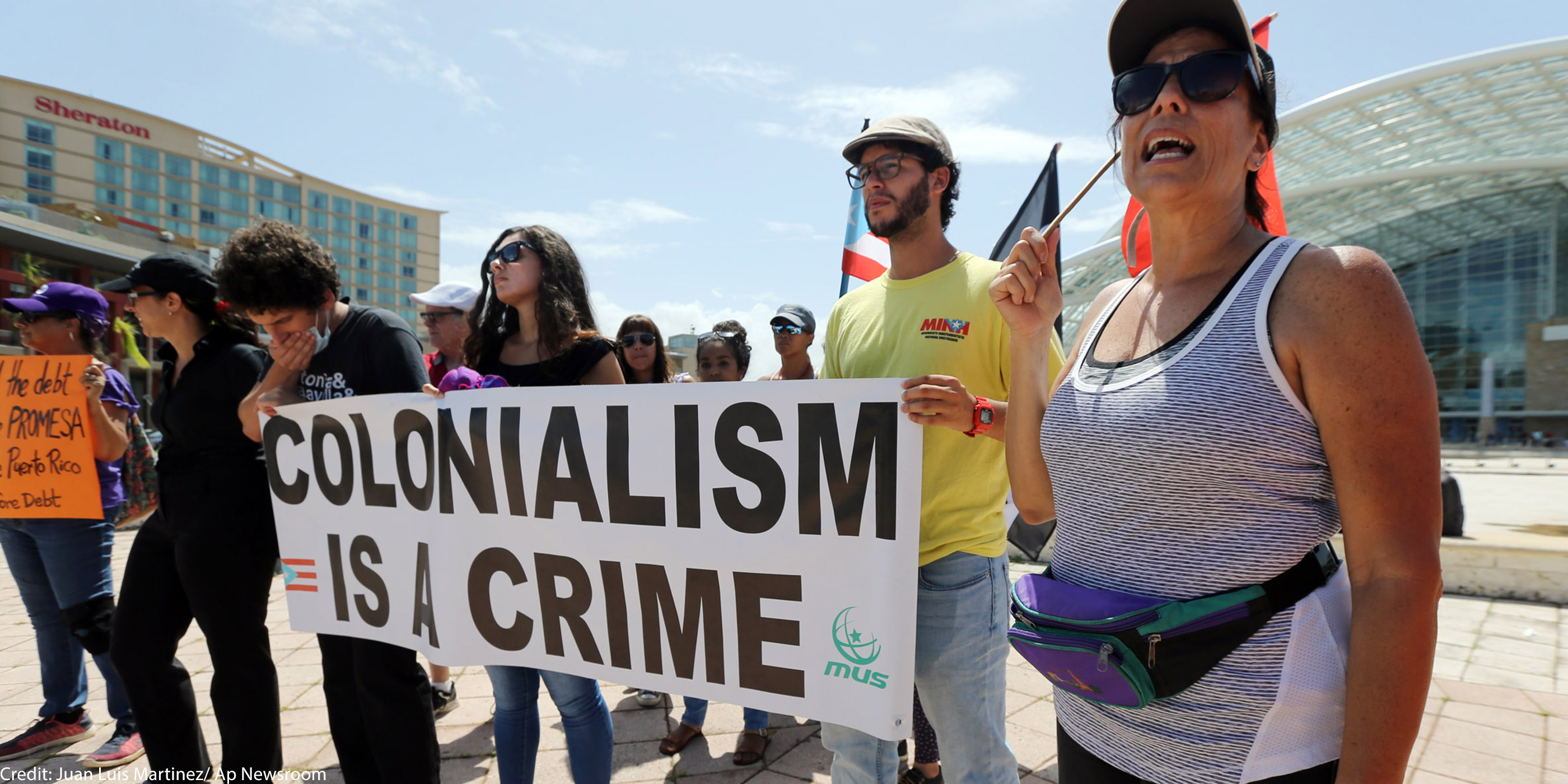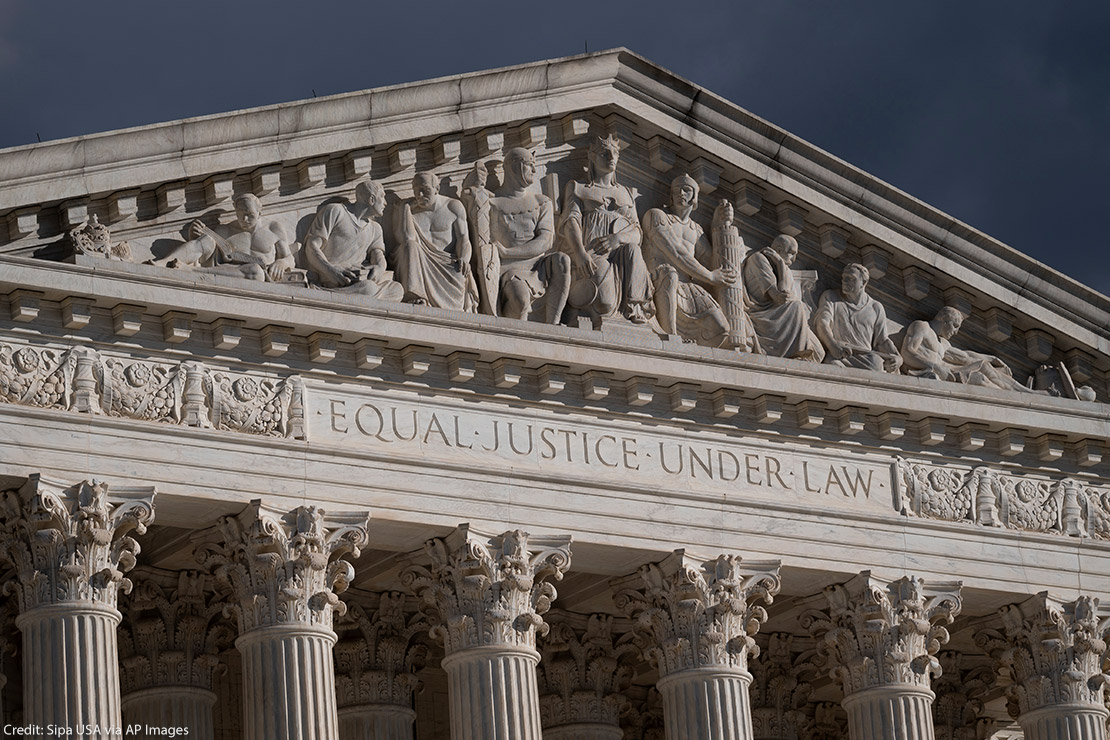Anti-colonialism
The Racial Justice Program challenges laws, policies and legal precedent that discriminate against residents of the United States territories: American Samoa, Guam, the Commonwealth of the Northern Mariana Islands, Puerto Rico, and the U.S. Virgin Islands.

What you need to know
The Latest
Explore More
The U.S. Declaration of Independence states that governments derive their just powers from the “Consent of the Governed” and calls for equality and individual civil rights for all. Yet, since 1898, when Puerto Rico and Guam were acquired by the U.S., followed by American Samoa, the U.S. Virgin Islands, and the Northern Mariana Islands, the U.S. has continued to discriminate against residents of the territories.
People in U.S. territories cannot vote in presidential elections, have no just representation in Congress, and no constitutional right to receive certain federal benefits that the government provides, such as Medicaid, food stamps, and Supplemental Security Income benefits for seniors and people with disabilities. Their right to self-determination is routinely ignored by the U.S., and their governance is treated as a purely domestic matter under Congress’s plenary powers.
The Ó◊” ”∆µopposes this status quo. We seek to dismantle colonialist policies that undermine human rights and economic opportunity. To that end, we have filed amicus briefs to the Supreme Court, including:
- U.S. v. Vaello-Madero, where we argued that the exclusion of Puerto Rico residents from the Supplemental Security Income program violates the equal protection component of the Fifth Amendment
- Fitisemanu v. United States, et al., addressing the constitutionality of the federal law designating persons born in American Samoa as “non-citizen U.S. nationals”
- FOMB v. Aurelius Inv., LLC, asking the court to overturn the Insular Cases.
We also continue to pursue appropriate advocacy opportunities to overturn or repudiate the Insular Cases. Along with a coalition of partners, we wrote letters to Congress in 2019, 2022, and 2023 to endorse resolutions against the Insular Cases. Additionally, we communicated with the Department of Justice in 2022 and to President Biden in 2023, urging that they condemn the Insular Cases and the colonial relationship they foster. We have also advocated for the right to self-determination and decolonization before the U.N. treaty bodies.
As we assess the relationship between the U.S. and its longtime overseas possessions, the injustice is obvious: these territories were colonies when the U.S. took them and remain so today.
The U.S. Declaration of Independence states that governments derive their just powers from the “Consent of the Governed” and calls for equality and individual civil rights for all. Yet, since 1898, when Puerto Rico and Guam were acquired by the U.S., followed by American Samoa, the U.S. Virgin Islands, and the Northern Mariana Islands, the U.S. has continued to discriminate against residents of the territories.
People in U.S. territories cannot vote in presidential elections, have no just representation in Congress, and no constitutional right to receive certain federal benefits that the government provides, such as Medicaid, food stamps, and Supplemental Security Income benefits for seniors and people with disabilities. Their right to self-determination is routinely ignored by the U.S., and their governance is treated as a purely domestic matter under Congress’s plenary powers.
The Ó◊” ”∆µopposes this status quo. We seek to dismantle colonialist policies that undermine human rights and economic opportunity. To that end, we have filed amicus briefs to the Supreme Court, including:
- U.S. v. Vaello-Madero, where we argued that the exclusion of Puerto Rico residents from the Supplemental Security Income program violates the equal protection component of the Fifth Amendment
- Fitisemanu v. United States, et al., addressing the constitutionality of the federal law designating persons born in American Samoa as “non-citizen U.S. nationals”
- FOMB v. Aurelius Inv., LLC, asking the court to overturn the Insular Cases.
We also continue to pursue appropriate advocacy opportunities to overturn or repudiate the Insular Cases. Along with a coalition of partners, we wrote letters to Congress in 2019, 2022, and 2023 to endorse resolutions against the Insular Cases. Additionally, we communicated with the Department of Justice in 2022 and to President Biden in 2023, urging that they condemn the Insular Cases and the colonial relationship they foster. We have also advocated for the right to self-determination and decolonization before the U.N. treaty bodies.
As we assess the relationship between the U.S. and its longtime overseas possessions, the injustice is obvious: these territories were colonies when the U.S. took them and remain so today.






